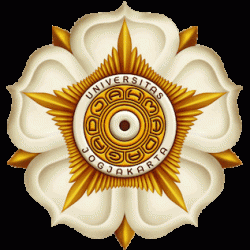About the Writer
 Bayu Dardias Kurniadi is awarded a Doctor of Philosophy at the Department of Political and Social Change, ANU in January 2020. He completed his Graduate Diploma in Public Administration and Master of Public Policy at ANU’s Crawford School of Economics and Government (Change to Crawford School of Public Policy) in 2008 and 2009 respectively, both under AusAid Scholarships.
Bayu Dardias Kurniadi is awarded a Doctor of Philosophy at the Department of Political and Social Change, ANU in January 2020. He completed his Graduate Diploma in Public Administration and Master of Public Policy at ANU’s Crawford School of Economics and Government (Change to Crawford School of Public Policy) in 2008 and 2009 respectively, both under AusAid Scholarships.
He also completed his Master of Arts in Interdisciplinary Islamic Studies specializing on Social Work in 2006 under Canadian International Development Agency and MRA Scholarships. He received his BA in Political Science from Gadjah Mada University (UGM) in Yogyakarta (2002), and subsequently became a research assistant.
In 2010, Bayu became a lecturer in the Department of Politics and Government, UGM. Bayu has had numerous research projects with local and national governments, along with international institutions. With district and province governments, Bayu had done numerous research, projects and consultations with the government of Yogyakarta, Sleman, Bantul, Kutai Kertanegara, Sorong Selatan, Raja Ampat, Lombok Timur, Jembrana etc (districts) and DIY, Papua Barat, Kalimantan Tengah, Papua, Aceh, Bali etc (provinces). His collaborative (both individual and teamwork) research and partnerships, include Ministry of Home Affairs, TIFA Foundation, Kinerja USAid, APDESI, Partnership Indonesia, SMERU, the World Bank Institute, IRI and other research institutions in various districts and provinces all over Indonesia. Bayu lectures in civil servants leaders training (Diklat PIM) for decentralisation and autonomy in Indonesia.
Bayu’s interests are on the politics of aristocracy, land politics, assymmetrical decentralization and public policy. His PhD research focuses on the question why some aristocrats have staged successful political comebacks in post-Suharto politics, while others have failed to do so. Since Indonesia’s democratization process began in 1998, some areas have witnessed the revival of traditional aristocratic institutions that existed before 1945. In those areas, it has become common for aristocrats to compete for positions in the executive and legislative branches of government, build successful business networks, and fulfill important cultural and religious functions. In South Sulawesi province for instance, nine out of twenty-four district heads have aristocratic backgrounds. Similarly, the position of Yogyakarta’s local aristocracy has been guaranteed by national law since 2012. However, aristocrats have not been successful everywhere. In North Maluku, for instance, the wife of the Sultan of Ternate failed in her bid to become mayor of Ternate. Which factors explain the success or failure of aristocrats in Indonesian regions? Is it the role of a particular aristocratic family under Dutch colonial rule that predetermined its fate in the current polity? Is it the particular stance of aristocratic leaders’ vis-à-vis the 1945 revolution that is decisive? What was the role of the New Order? Or are historical factors completely irrelevant and the outcome of aristocratic bids for power today is determined solely by institutional and structural factors, such electoral reforms and forms of capital accumulation?
Education Backgrounds
- PhD (Australian National University – Dept. of Political and Social Change, 2019). Thesis (with No Revision): Defending the Sultanate’s Land: Yogyakarta, Aristocratic Power and Control over Land in Post-Autocratic Indonesia. Download Full Thesis Here
- Master of Public Policy/ M.Pub.Pol (Australian National University – Crawford School of Economics and Government , 2009).
- Graduate Diploma in Public Administration/Grad.Dip Pub.Admin (Australian National University – Crawford School of Economics and Government, 2008).
- Master of Art /M.A (UIN Sunan Kalijaga Yogyakarta-McGill University, 2007).
- Sarjana Ilmu Politik /S.IP (Universitas Gadjah Mada – Dept. of Government Science, 1997-2003) ||Lulusan Terbaik Jurusan Februari 2003.
- SMA Negeri 1 Magelang (1994-1997)
- SMP Negeri 2 Magelang (1991-1994)
- SD Negeri Cacaban IV Magelang (1985-1991) || NEM Tertinggi || Lulusan Terbaik.
- TK Pertiwi Kabupaten Magelang (1983-1985)
Complete Publication here.
His interview (October 2017) of the politics of aristocracy in Yogyakarta with Tirto.id can be seen here.
Profile in Acadstaff UGM Here
Profile in Kedaulatan Rakyat Here

